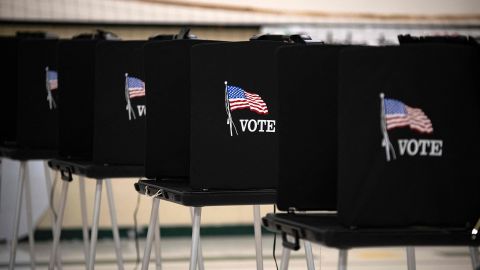In the era of digital manipulation and AI advancements, the potential for misinformation and deceptive imagery has become a growing concern, particularly in the realm of elections. A recent report by the Center for Countering Digital Hate (CCDH) sheds light on a troubling phenomenon: leading artificial intelligence image generators can be manipulated into creating misleading election-related images.
Released on Wednesday, the report highlights the susceptibility of AI photo generators to produce deceptive content, raising alarms about the implications for democratic processes and the spread of misinformation.
The Study’s Findings
The study conducted by the CCDH scrutinized several prominent AI photo generators, evaluating their ability to generate realistic images of political figures, events, and scenarios. Researchers discovered that these AI systems, while capable of producing high-quality images, can be easily exploited to create misleading content with potentially damaging consequences.
By inputting specific parameters and instructions, individuals with malicious intent can manipulate AI photo generators to fabricate images depicting fictitious events, false endorsements, or altered appearances of political candidates. These generated images, when circulated on social media or other digital platforms, have the potential to sway public opinion, sow discord, and undermine the integrity of electoral processes.
Implications for Elections and Democracy
The proliferation of misleading election-related images poses significant challenges to the integrity of democratic systems worldwide. In an age where digital content spreads rapidly and uncontrollably, the dissemination of manipulated images can influence voter perceptions, distort reality, and erode trust in political institutions.
Moreover, the study underscores the urgent need for enhanced regulation and oversight of AI technologies, particularly those with the capacity to generate highly realistic images. Without robust safeguards in place, AI-driven misinformation campaigns could become a pervasive threat to the democratic process, undermining the fundamental principles of transparency, accountability, and informed decision-making.
Addressing the Challenge
To combat the proliferation of misleading election-related images, concerted efforts from policymakers, tech companies, and civil society organizations are essential. The following measures could help mitigate the risks associated with AI-driven misinformation:
Regulatory Frameworks: Governments must establish comprehensive regulatory frameworks to govern the use of AI technologies, including stringent guidelines for the creation and dissemination of synthetic media.
Transparency and Accountability: Tech companies should prioritize transparency in AI development and deployment, disclosing the capabilities and limitations of AI photo generators to users and regulators. Additionally, platforms must hold users accountable for the dissemination of deceptive content, implementing measures to detect and remove misleading images.
Media Literacy Education: Promoting media literacy and critical thinking skills is crucial in empowering individuals to discern between authentic and manipulated content. Educational initiatives should focus on equipping citizens with the knowledge and tools to navigate the digital landscape responsibly and identify potential sources of misinformation.
Collaborative Efforts: Multistakeholder collaboration involving governments, tech companies, civil society organizations, and academic institutions is vital in addressing the complex challenges posed by AI-driven misinformation. By fostering partnerships and sharing best practices, stakeholders can develop effective strategies to combat the spread of deceptive imagery.
Conclusion
The findings of the CCDH report underscore the urgent need for action to address the threat posed by misleading election-related images generated by AI technologies. As we navigate the digital age, safeguarding the integrity of democratic processes and preserving public trust in institutions requires proactive measures to mitigate the risks of AI-driven misinformation. By adopting a collaborative and multidisciplinary approach, we can work towards building a more resilient and trustworthy information ecosystem, ensuring that elections remain free, fair, and transparent.






